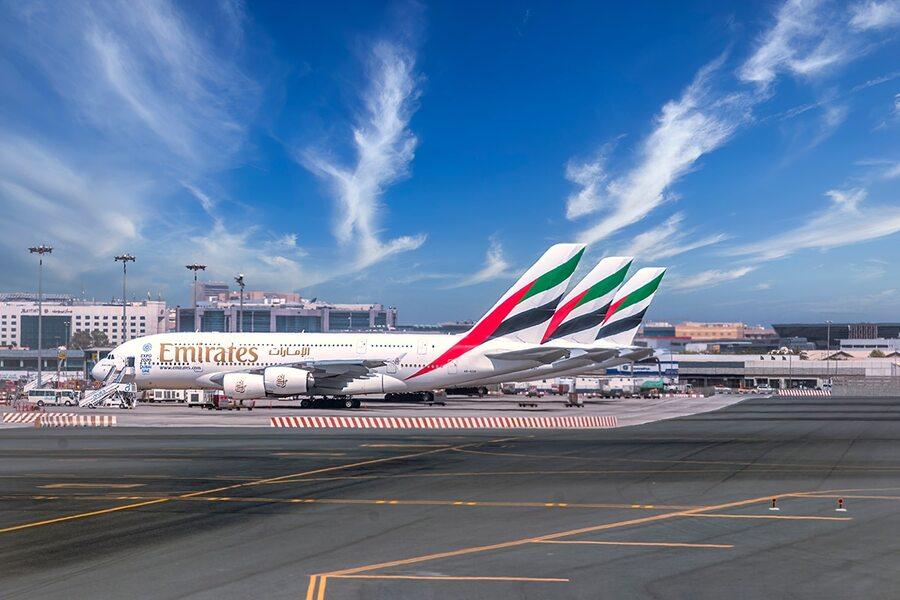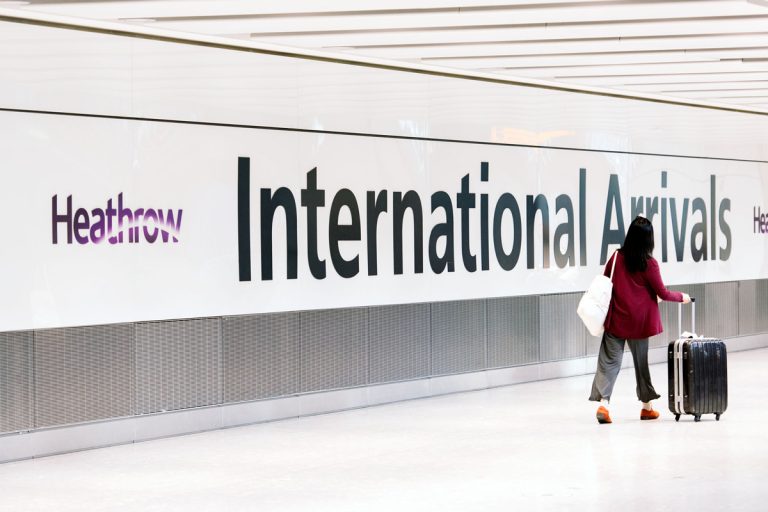- About
- Admissions
- Study at AUS
- Prospective Students
- Bachelor's Degrees
- Master's Degrees
- Doctoral Degrees
- Admission Publications
- International Students
- Contact Admissions
- Grants and Scholarships
- Sponsorship Liaison Services
- Testing Center
- New Undergraduate Student Guide
- New Graduate Student Guide
- File Completion
- New Student Orientation
- Payment Guide
- Executive Education
- Students with Disabilities
- Academics
- Life at AUS
- Research
- Contact Us
- Apply Now
- .

UAE, UK researchers push for green flight paths, sustainable aviation fuel to meet aviation net-zero targets by 2050
Published by Arabian Business
and by Wired Middle East
The UAE aims to produce 700 million litres of SAF annually by 2030, under the general policy for sustainable aviation fuel
The UAE and the UK have called for the establishment of green flight paths (GFP) and increased adoption of sustainable aviation fuel (SAF) to accelerate the industry’s path to decarbonisation, according to a new study published by the Royal Society of Chemistry’s Engineering and Environmental Science journal.
The research conducted by experts from the American University of Sharjah (AUS), Khalifa University and Heriot-Watt University and the University of Sussex, proposed dedicated flight paths for SAF-powered aircraft as a strategy to meet the industry’s 2050 net-zero goals.
The study highlighted UAE’s potential to accelerate this imitative citing the country’s position as a major aviation hub and its existing commitment to developing sustainable aviation fuel infrastructure.
Under its general policy for sustainable aviation fuel, the UAE aims to produce 700 million litres of SAF annually by 2030. SAF has the potential to significantly lower greenhouse gas emissions than traditional fossil-based jet fuels.
The research paper is led by Dr. Steve Griffiths, Vice Chancellor for Research at AUS.
“The UAE is a small country with a huge aviation industry. This means that the majority of flights originating in the UAE are international, long-haul flights where only sustainable aviation fuel is a viable option for fuel decarbonisation. Neither aircraft electrification nor hydrogen propulsion will suffice,” he said.
UAE, UK researchers push for green flight paths, sustainable aviation fuel to meet aviation net-zero targets by 2050
The UAE aims to produce 700 million litres of SAF annually by 2030, under the general policy for sustainable aviation fuel
The majority of flights originating in the UAE are international, long-haul flights where only sustainable aviation fuel is a viable option for fuel decarbonisation, Dr. Griffiths said.
The UAE and the UK have called for the establishment of green flight paths (GFP) and increased adoption of sustainable aviation fuel (SAF) to accelerate the industry’s path to decarbonisation, according to a new study published by the Royal Society of Chemistry’s Engineering and Environmental Science journal.
The research conducted by experts from the American University of Sharjah (AUS), Khalifa University and Heriot-Watt University and the University of Sussex, proposed dedicated flight paths for SAF-powered aircraft as a strategy to meet the industry’s 2050 net-zero goals.
The study highlighted UAE’s potential to accelerate this imitative citing the country’s position as a major aviation hub and its existing commitment to developing sustainable aviation fuel infrastructure.
Under its general policy for sustainable aviation fuel, the UAE aims to produce 700 million litres of SAF annually by 2030. SAF has the potential to significantly lower greenhouse gas emissions than traditional fossil-based jet fuels.
The research paper is led by Dr. Steve Griffiths, Vice Chancellor for Research at AUS.
“The UAE is a small country with a huge aviation industry. This means that the majority of flights originating in the UAE are international, long-haul flights where only sustainable aviation fuel is a viable option for fuel decarbonisation. Neither aircraft electrification nor hydrogen propulsion will suffice,” he said.
He also explained that GFP can “not only catalyse decarbonisation of the aviation sector, but also lead to international cooperation for the development of SAF and the related clean technologies required to achieve net-zero by 2050 on a global scale.”
The study was based on the examination of the London Heathrow-Dubai route which serves as an example of a long-haul route for “greening” the aviation industry.
“The UK and the UAE exemplify the type of countries that would serve as SAF production lead markets…[Their] two airports are also the first and second-ranked airports in the world in total international passengers in both 2019 and 2022… this route is not only among the busiest in the world, but it is also mostly served by large wide-body aircraft,” the study said.

Professor John Andresen from Heriot-Watt University drew parallels between the proposed GFPs and existing green shipping corridors, emphasising the urgent need for prioritising long-haul flight segments in SAF adoption.
The study revealed a significant gap between current SAF production and future needs, with 2022 production levels at just 0.1 per cent of the 2050 net-zero goal. Meeting these targets will require substantial investment, estimated between $1.1-1.45 trillion.
A key advantage of SAF implementation, according to the research, is its compatibility with existing aviation infrastructure.
Unlike maritime green corridors, which require new vessels and infrastructure, SAF can be used in current aircraft engines without modifications, making it a more practical immediate solution for reducing aviation emissions.
The researchers also emphasised the climate justice aspects of GFPs, suggesting that regions with high demand for long-haul air travel should take the lead in making investment commitments.
The study noted that many potential GFP locations are already situated near industrial clusters working on decarbonisation, offering opportunities for coordinated development of sustainable fuel infrastructure.
On the account of COP29, the research stands as a testament to the urgency of implementing the frameworks in the aviation industry, according to the report, the establishment of GFPs is vital to aviation just as green shipping corridors are crucial for the maritime industry.

